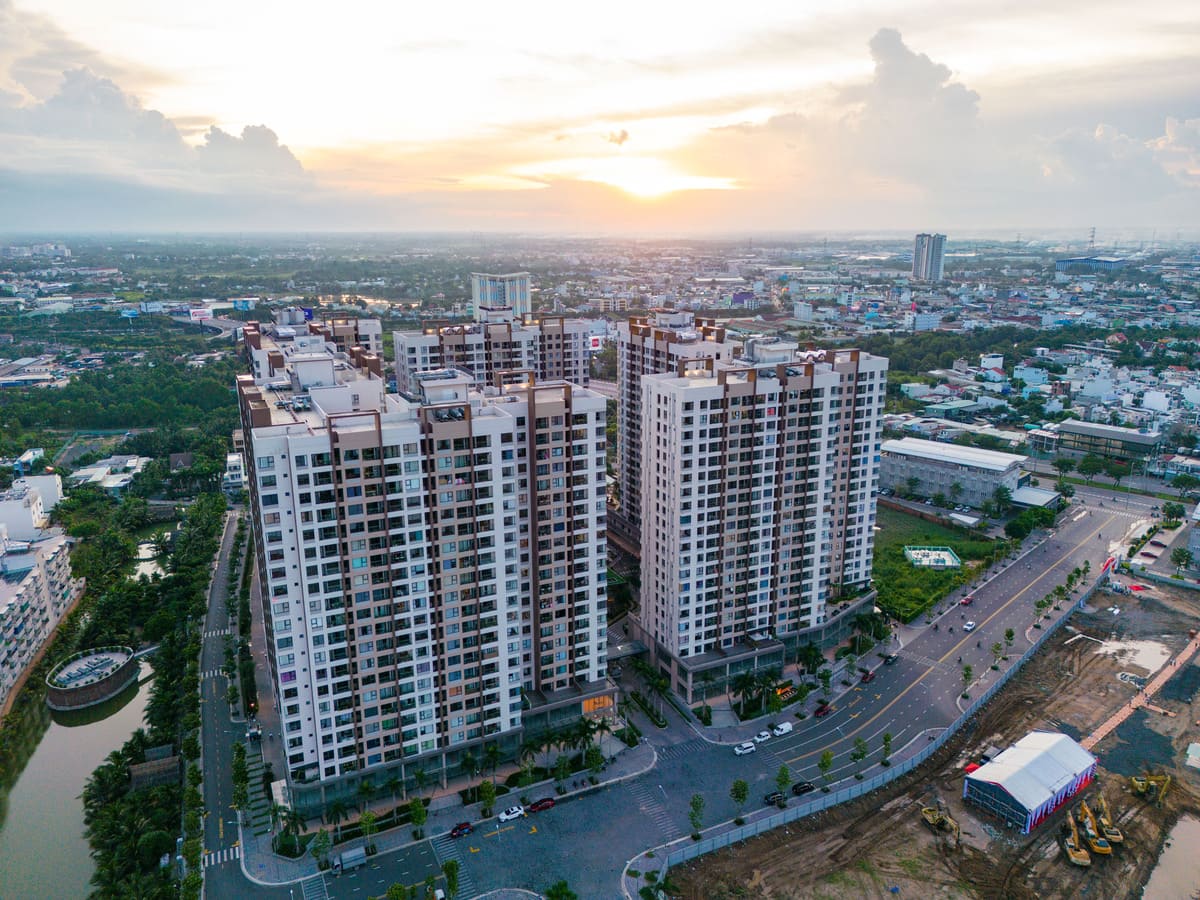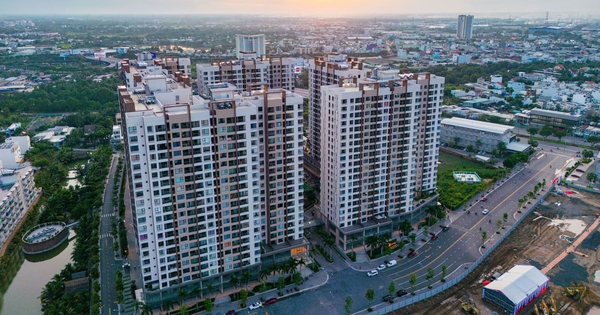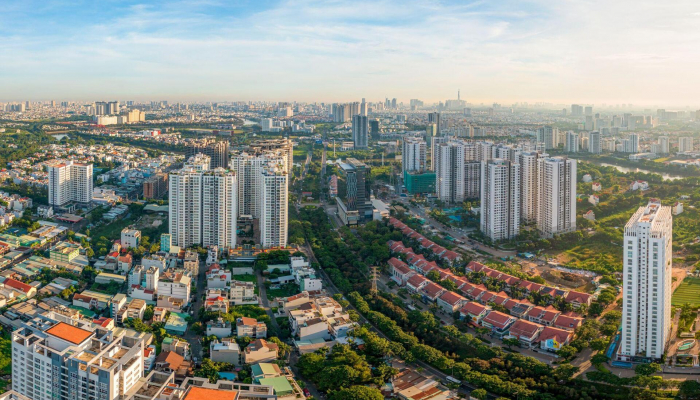Many positive aspects are noted when applying the new Law.
Accordingly, the Housing Law 2023 has stipulated many new points on housing development, renovation, construction of old apartments, social housing and management and use of apartment buildings. Assessing the impact on the market and project management and operation, Mr. Tran Ngoc Duy, Deputy Director of Savills Hanoi Real Estate Management Department, said that the Housing Law 2023 will help everything become more systematic, contributing positively to the recovery process of the market.
In addition, the Housing Law 2023 also helps overcome the limitations in the old law, clarifying the subjects and duration of the project, construction quality, housing ownership rights, etc. Especially, in the field of housing project management and operation, it helps resolve common disputes between customers and management units, and more clearly stipulates the rights and responsibilities of related parties.
However, the impacts of this Law will be long-term. In fact, when it was applied 5 months earlier than the original plan, there were still not many specific regulations and instructions for implementation. For example, only Decree 95/2024/ND-CP guiding the new Housing Law was promulgated on July 24, 2024 and Circular 05/2024/TT-BXD was issued on July 31, 2024.

Mr. Tran Ngoc Duy - Deputy Director of Savills Hanoi Real Estate Management Department
Regarding the changes between the Housing Law 2023 and the Housing Law 2014, Savills experts said that the new law focuses on the quality of construction and services during operation. Regarding the quality of construction, instead of keeping the usage period fixed at 50 years as before, the new law stipulates that the project usage period will be adjusted based on the actual quality of the construction, in order to maintain and repair degraded projects in a timely manner.
Regarding service quality, the new Law introduces changes in operational management, such as detailing revenues/expenditures and having specific requirements on the capacity of the management unit. In addition, the fire insurance fund and the Management Board's remuneration will be separated from the service fee and become a separate expense. The operational management unit needs to work with the Management Boards/Investors to quickly issue new service cost calculation tables in accordance with the Law's provisions.
The 2023 Housing Law also stipulates that all revenue from the exploitation of common areas, such as advertising profits in lobbies, elevators, or two-wheeled vehicle parking lots, and common utility areas, must be transferred to the maintenance fund.
"Previously, these revenues were added to the management and operation fund to offset operating costs. This change will affect the management fund's revenue, requiring operating units to rebalance their budgets and operating plans to adapt to the new regulations, ensuring stable operations and not affecting residents," said Mr. Tran Ngoc Duy.
In addition, the service contract term is also stipulated to be a maximum of 3 years according to the term of the Board of Directors. Operational management units must ensure and maintain quality and capacity throughout the operation period. This encourages management units to focus more on work efficiency, not only to meet immediate requirements but also to ensure competitiveness for contract renewal after expiration.
Ensuring transparency in operations management
Talking about the impacts on residents, the Deputy Director of Savills Hanoi Real Estate Management Department also said that the Housing Law 2023 has made important adjustments compared to the 2014 regulations, strengthening the legal framework, ensuring transparency in management and operation and protecting the rights of residents.
In particular, the new Law has added regulations on determining common and separate ownership in cases where the contract does not specify, helping to protect the rights of home buyers. The Law adds ways to determine common ownership of equipment and components attached to balconies and loggias.
The clear separation between fire insurance and the Management Board's remuneration with the service fee unit price helps residents better understand the purpose of using the fees. In addition, the new Law stipulates that revenue from exploiting services for common property must be transferred to the maintenance fund instead of supplementing the operation management fund, contributing to creating a favorable mechanism for the maintenance of common items and improving the quality of infrastructure.

The 2023 Housing Law makes the management process of apartment buildings transparent, ensuring the rights of residents.
In addition, the new regulation on the announcement of the Plan for training in professional knowledge and skills in apartment building management and operation for the Management Board at the Apartment Building Conference also requires members of the Management Board to be trained and granted certificates (no later than 3 months from the date of the recognition decision), ensuring that members of the Management Board have a firm grasp of professional knowledge and skills related to apartment building management and operation.
The Housing Law, guided by Decree 95/2024/ND-CP, also requires investors to publicly disclose the project's legal documents to buyers and lessees, including minutes of project completion acceptance, documents approving fire prevention and fighting acceptance results, notices of approval from specialized construction agencies, parking area drawings, etc. This regulation may affect the project operation progress of investors and the supply of apartments to the market, but will ensure transparency, safety in operation and minimize risks for home buyers.
In addition, the classification of apartment buildings is strictly regulated and has more specific criteria, helping buyers correctly assess the quality of the project, preventing the situation of self-classification to push up apartment prices unreasonably.
"Instead of the A, B, C regulations, projects will be classified into 1, 2, 3. Classification will be based on 8 mandatory criteria including: Location, location of the apartment building; amenities within the apartment building; parking space; corridor, lobby; elevator; power supply; apartment; minimum criteria is compliance with construction standards. Along with that are 5 additional criteria including: management and operation services; environment; security, safety, fire prevention; green buildings, efficient energy use; digitalization and smart homes", Savills experts analyzed.
Source: https://www.congluan.vn/luat-nha-o-2023-dam-bao-minh-bach-trong-cong-tac-quan-ly-van-hanh-chung-cu-va-quyen-loi-cua-cu-dan-post310716.html








![[Photo] General Secretary To Lam attends the 80th Anniversary of the Cultural Sector's Traditional Day](https://vstatic.vietnam.vn/vietnam/resource/IMAGE/2025/8/23/9f771126e94049ff97692935fa5533ec)




































































































Comment (0)